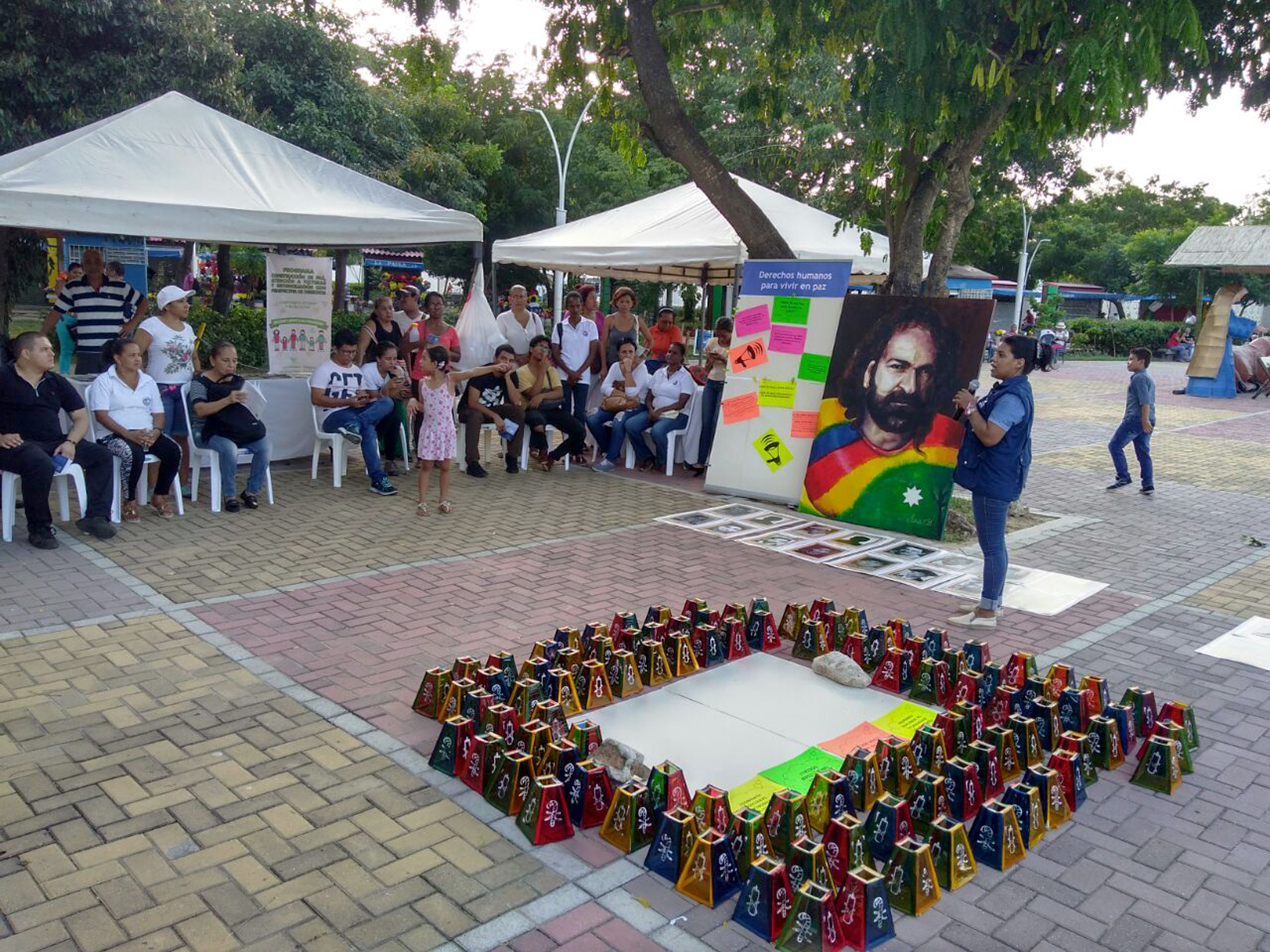Some of the most famous cases of socio-political violence in Atlántico are the targeted killings in the 1980’s and 1990’s which were attacks against resistance movements. Historically, the city of Barranquilla was the epicentre of the rebellion of labor unions and saw the rise of a social and student movement. The latter had to face systematic attacks by the Frente José Pablo Díaz Zuluaga of the AUC and State security organs in complicity with political leaders of the region.
In the early 2000’s, there was a second wave of widespread attacks with the paramilitary raid of the Bloque Norte of the AUC. They committed two massacres that shaped the department’s history : on the 31st of December 2000 in the vereda Pita (Repelón) and on the 22nd of November 2002 in the Nueva Venecia (Sitionuevo) township. Other crimes that caused many victims were extrajudicial executions, amongst which we can find the wrongly named “false positives” committed by Army members, some of them members of the La Popa Battalion. Moreover, soldiers disappeared among the National Army ranks.
Human rights activists, labor unionists, teachers, students, politicians, merchants, farmers, rural people, workers and members of the LGBTI community have been the most impacted in the department. At the end of 2013, there were 170.991 victims. These criminal acts led to a rise in the number of victims of forced displacement that went from 1.023 victims in the 1990’s to 9.017 between 2000 and 2006.
After the signature of the Peace Agreement, Bernardo Cuero was assassinated. He was an activist for the rights of victims and member of the Asociación Nacional de Afrocolombianos Desplazados (AFRODES). His death took place in June 2017 in circumstances that still need to be clarified, for reasons linked to his activism related the rights of victims to land and territory. Eight months later, two of his sons were killed only a few days after the first public audience for their father’s murder.
Furthermore, harassment and threats still take place against members of Juntas de Acción Comunal in the South-East and the South-West of Barranquilla. After denouncing the failure of State institutions on topics such as the restoration of rights through productive projects and collective reparations for victims, human rights activists have been threatened in the South and the North-West of Atlántico.
The Atlántico chapter, based in Barranquilla, is mainly composed of victims of these events. It counts 16 victim organizations : Asociación de Desplazados de Sabana Grande (ASODES), Comité Permanente por la Defensa de los Derechos Humanos (CPDH), Mujeres Víctimas por la paz de Colombia (MUVIPAZ), Familias Unidas Por Un Solo Dolor (AFUSODO), Asociación Nacional de Desplazados de Colombia (ANDESCOL Atlántico), Asociación de Víctimas Nuevo Futuro (ASODENUF), Asociación de Víctimas Reverdeser, Corporación para la Educación y Autogestión Ciudadana (CEAC), Fundación Comité de Solidaridad con los Presos Políticos (FCSPP Atlántico), Asociación de Campesinos de María Jacinta en Luruaco (ASOPROMAJA), Asociación Campesina Vereda Las Nubes (COMPAZ), Asociación de Víctimas la Cangrejera (ASOVICA), Asociación de Víctimas PROFUTURO, AFRODES, Colectivo de Víctimas Nueva Colombia (displaced families from Montes de María), Colectivo de Mujeres Víctimas Las Gardenias (women victims of the armed conflicts of Magdalena, Cesar and Sucre), Colectivo de Víctimas La Central and the Asociación Cívica de Víctimas por un Esfuerzo Mejor.
Contact us: moviceseccionalatlantico@gmail.com


